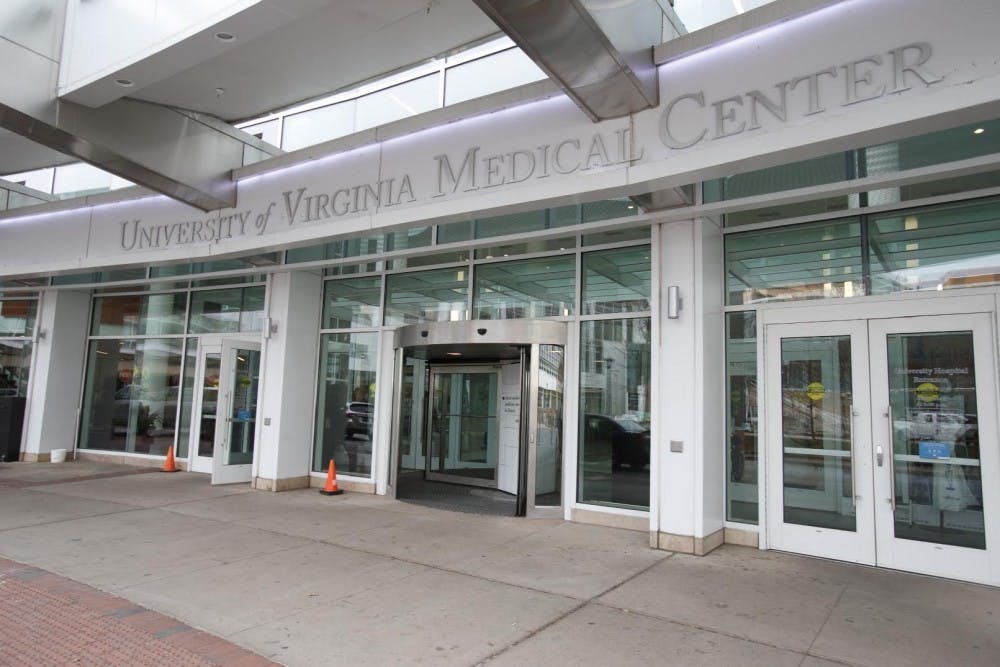The Physicians Committee for Responsible Medicine — a national nonprofit with more than 12,000 doctors — filed a federal complaint last week against the University for their use of live animals in general surgery resident training.
Following a Virginia Freedom of Information Act request, PCRM obtained documents that reveal the University’s “Surgical Training for General Surgery Residents” lab is approved to use 32 live pigs per year.
The live pigs are used to train general surgery residents in four different procedures — open bowel resection and anastomosis, laparoscopic splenectomy, open nephrectomy and open liver resection.
PCRM alleges that the University’s practices fall below the current standard in animal use for surgical training — with a PCRM ongoing survey revealing that 73 percent of general surgery resident programs in the United States use exclusively non-animal methods, including all other Virginia based surgical residencies.
The complaint, addressed to Robert Gibbens, Director of Animal Welfare Operations, asks the Animal and Plant Health Inspection Service to launch an investigation concerning the live animal use in the University’s medical training facilities.
“The Physicians Committee believes that inadequate oversight by U.Va.’s [Institutional Animal Care and Use Committee] is responsible for the approval and ongoing use of live animals in its general surgery residency program,” the complaint reads.
PCRM claims that the University’s practices go against the Animal Welfare Act’s regulations and standards — which they are obligated to adhere to as a research facility.
One regulation states that alternatives to procedures that may cause stress or pain to an animal must be considered — PCRM lists methods such as laparoscopic simulators, virtual reality simulators, human cadavers, partial task trainers and human-patient simulators as successful substitutes.
The other regulation that PCRM believes the University to be in violation of stipulates that all procedures using live animals be designed to “assure that discomfort and pain to animals will be limited to that which is unavoidable for the conduct of scientifically valuable research.”
PCRM believes that these practices that the University uses are avoidable as other facilities across the United States successfully train general surgery residents without live animals.
Eric Swensen, the University Health System’s public information officer, stated that using live pigs in specific surgery training sessions has been the standard practice for over 10 years.
“Each time the protocol is renewed, the curriculum committee for general surgery certifies that no reasonable alternative is available to teach this specific laparoscopic surgical technique,” Swensen said. “The organs repaired using this laparoscopic surgical technique are similar in pigs and humans.”
Swensen asserts that the University Health System is not in violation of any Animal Welfare Act standards.
“The pigs are deeply anesthetized throughout the laparoscopic surgical procedure, and they are monitored by U.Va. veterinary staff to make certain they are deeply anesthetized,” Swensen said. “As part of a federally mandated annual review, the U.S. Department of Agriculture inspects our care of the pigs and has not identified any issues.”
Although the University Health System still uses live animals in some of their training procedures, Swensen assures that they are actively pursuing alternatives.
“As part of our regular review process, we will continue to examine alternatives to teaching this specific surgical method,” Swensen said. “As soon as a suitable alternative is identified, we will change this laparoscopic surgery training protocol.”
In 2011, the Physicians Committee for Responsible Medicine filed a complaint seeking to stop the University’s School of Medicine from using live cats to train residents on how to insert breathing tubes in newborns. The University ended this practice in 2013.







